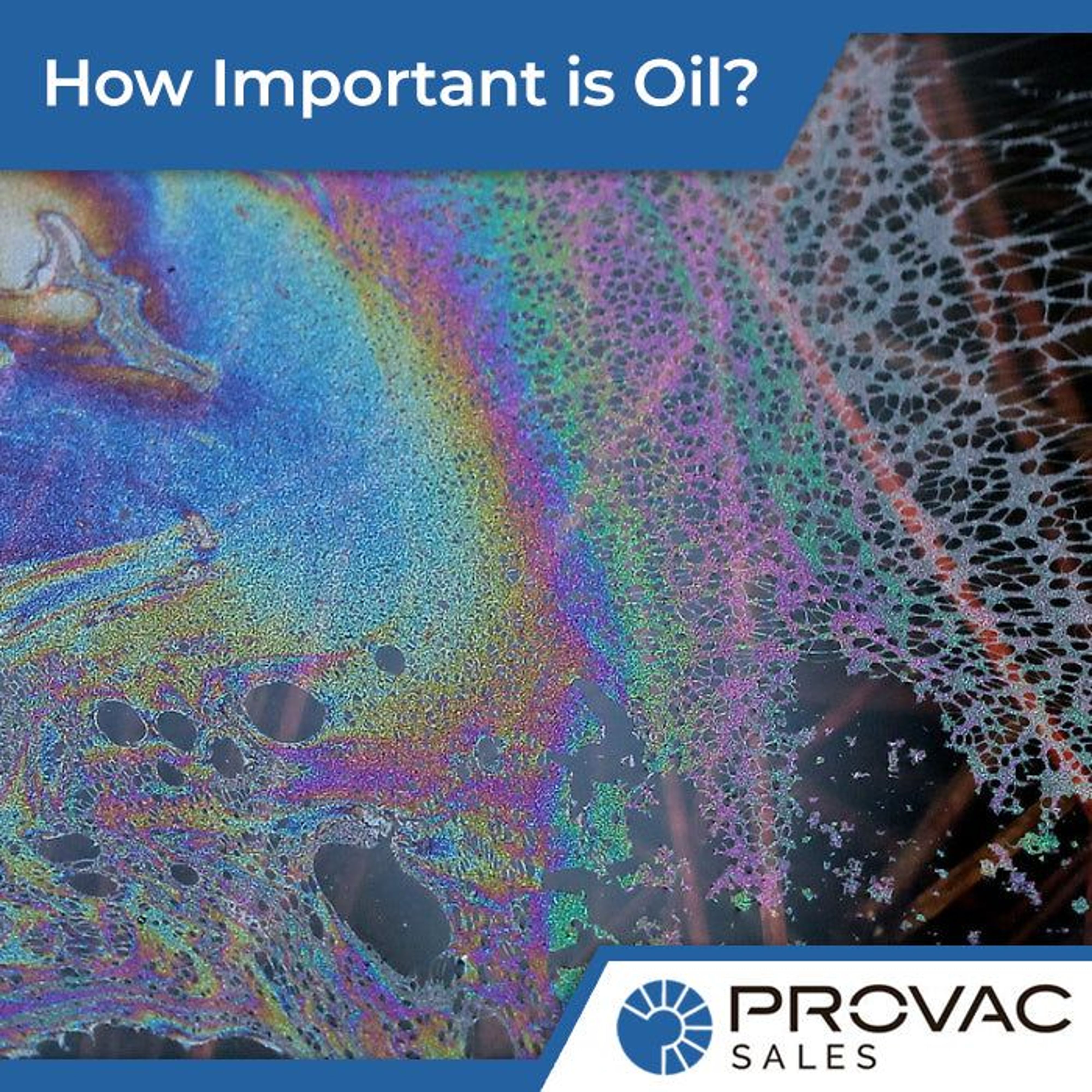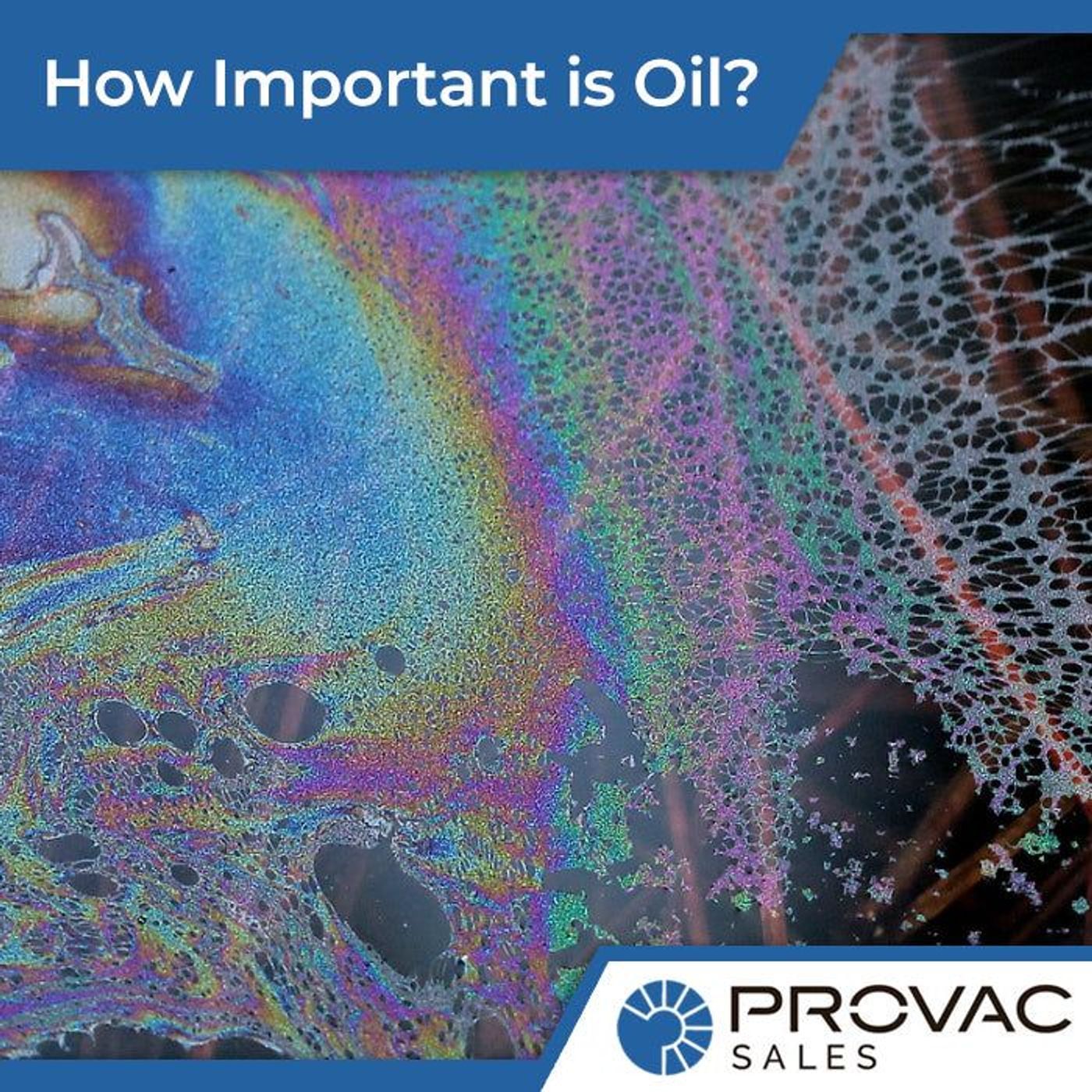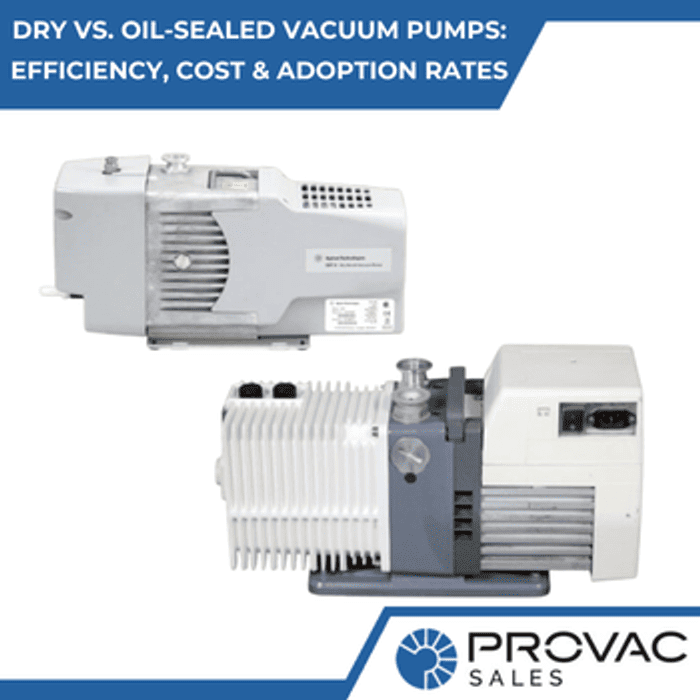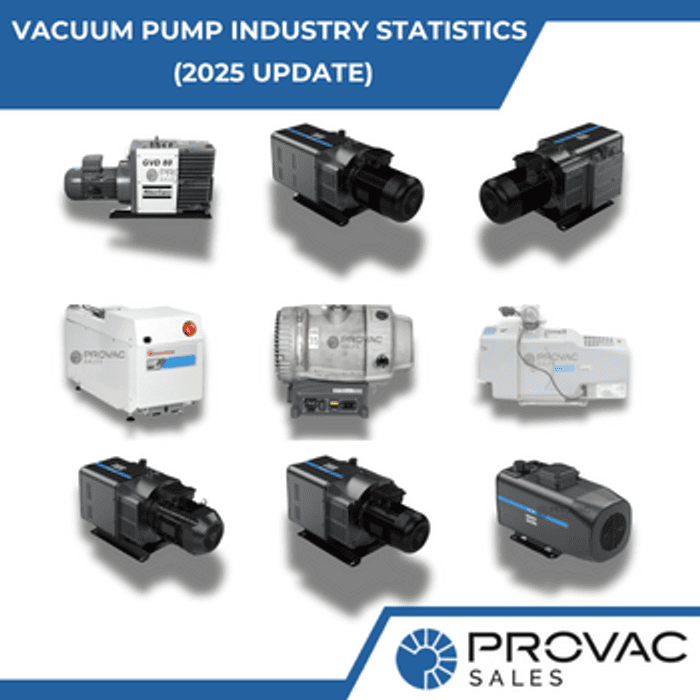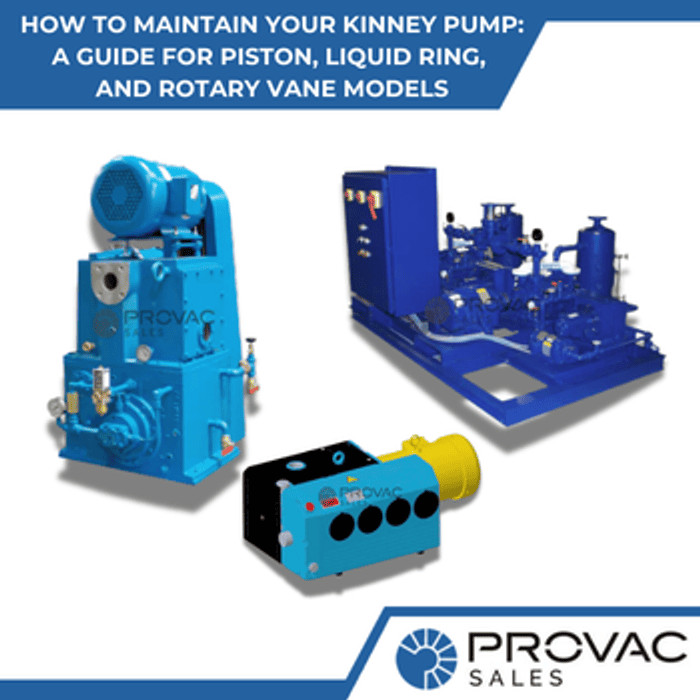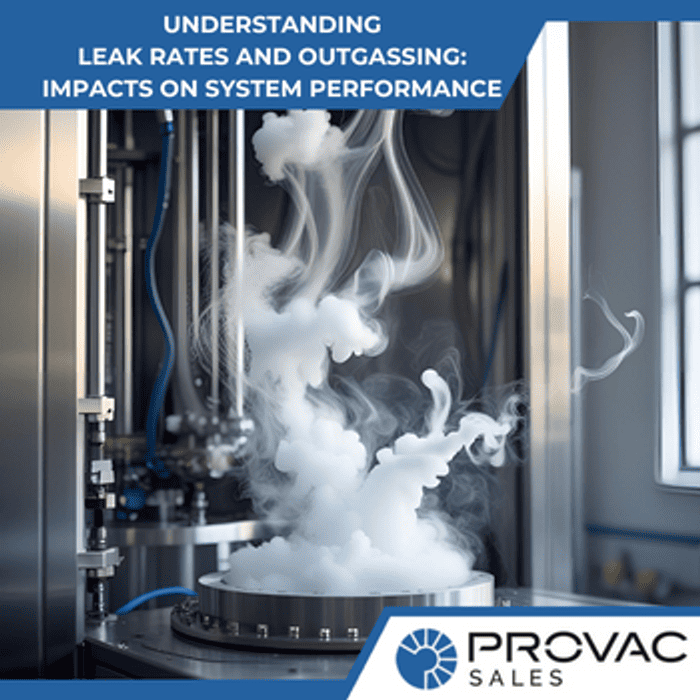Vacuum pump oil is essential in keeping your vacuum pump operational. It lubricates the pumping machine, while also collecting contaminants and moisture from the evacuated systems. Vacuum pump oil is typically a mineral oil that is well-refined and has a specific viscosity and low vapor pressure for the usage it is being applied to.
Though the term ‘oil’ is used, modern pump oil has developed far beyond the distilled petroleum products. Today, you can find double- and triple-distilled oils, as well as silicone-based synthetic, low sulfur, hydro-treated, and even flushing oils that are used to clean the pump. These application-specific oils should be pure from additives, (apart from anti-oxidation, anti-foaming, or corrosion-resistant additives). Figuring out which oil you need is as easy as reading the operational manual from the manufacturer of your pump.
The Importance of Vacuum Pump Oil
Vacuum fluids play a significant role in a vacuum pump. For oil-sealed vacuum pumps, such as vane and piston pumps, the vacuum fluid is an essential part of the vacuum creation. For example, in oil seal vane pumps, the vacuum fluid creates a smooth rotation cycle, enabling the blades to slide smoothly within the rotor and helps to trap the gas and move it from the intake to the exhaust. Even in “dry” pumps such as dry screw pumps, vacuum fluid is utilized to lubricate the gear mechanism.
It is crucial to select the appropriate fluid for your specific application. For example, in oxygen-rich environments, a hydrocarbon-based fluid would typically not be used to avoid oxidation of the hydrocarbon fluid which would cause degradation and a potentially toxic byproduct. A full line of inert fluids is made for oxygen-rich applications. Other industry-specific fluids are available for automotive and refrigerant applications, and applications where a fire-resistant fluid is required.
When Do You Need to Change Your Vacuum Pump Oil?
Some contaminants are able to be exhausted out of the vacuum pump during operation, however many can become trapped in the oil reservoir. Once the oil becomes saturated with contaminants, the ultimate vacuum that the pump will be able to achieve will be reduced, as it will be battling the outgassing of the contaminants. To improve pump performance, changing the oil when it becomes contaminated is key.
Depending on possible contaminants, application, and oil type, the frequency of oil changes can vary anywhere between daily and monthly. How often do you actually need to change the oil? Some situations to consider:
- If the vacuum pump level is bouncing up and down, it may indicate oil contamination
- If you observe oil discoloration, whether it’s darkening for hydrocarbon oils (from heat or other contaminants), or if it’s changing to a creamy color (brought on by moisture contamination)
- If the vacuum pump doesn’t reach the desired vacuum level
These situations should help in determining if your vacuum oil has changed its ability to keep its vapor pressure or designed viscosity for maximum efficiency. Remember to change your pump oil based on the manufacturer-approved procedure, and be sure to dispose of the used oil in a legal and authorized location. When changing vacuum oil, it is also a good time to take a look at any filtration which is utilized for the pump, such as screw-on pump filters, exhaust mist filters, and inlet traps. Changing the filters when they reached their specific lifespan will help the vacuum pump run more efficiently.
